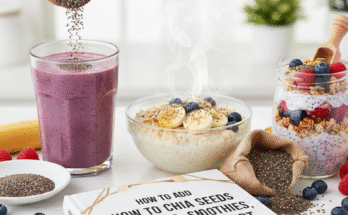Are organic foods safer?
Established principles of organic farming are “health, ecology, fairness and care”. But if you ask people why they buy organic food, fear was the strongest indicator of their own health or the health of their family members. People can spend more on organic food for selfish rather than altruistic reasons.
Although organic foods may not contain more nutrients per unit of currency, consuming them can reduce exposure residues of pesticides and bacteria resistant to antibiotics. There was generally no risk to food safety contamination with food poisoning bacteria. Both organic and classical animal products were routinely contaminated such as salmonella or Campylobacter.
It was found that most chicken samples were contaminated, either by Campylobacter or by about one-third of Salmonella. But the risk of exposure to bacteria resistant to multiple drugs, resistant to multiple groups of antibiotics, it was lower for meat in bio-quality. So both can carry a similar risk of getting sick, but food poisoning from biomass it may be easier for a doctor to cure. What about pesticides?
There is plenty of evidence of the link between exposure to pesticides and increased chronic disease, like different types of cancer, diabetes, neurodegenerative disorders such as Parkinson’s or Alzheimer’s disease and ALS, like birth defects and reproductive disorders. However, here we are talking about people who live or work with pesticides. For example, Salinas Valley, California, where they spray a quarter of a million kilograms. If a woman dares to get pregnant in such an agricultural community, it may damage the baby’s brain development. So much so that the pregnant women who had the highest levels in the body, measured by urine samples, children were born with an average deficit of around 7 IQ points.
26 out of 27 studies have shown negative effects of pesticides on children’s brain development. There were problems with attention, developmental disorders and short-term memory problems. If you compare new born babies with those in umbilical cord high blood levels of common insecticide, then those exposed to higher levels, were born with brain anomalies. And they were children from the city, so it was probably caused by household pesticides. Exposure of the population to pesticides, like using insecticides inside your house, may be a contributing factor for various cancers such as childhood leukemia.

This suggests that the population has increased awareness that they have pesticides potentially negative impact on their children’s health. Although I cannot imagine that most agricultural workers have too much choice. Pregnant women working on farms are at double risk that their child gets leukemia. And the risk of brain tumors also increases. So traditional crops can be harmful for pregnant women harvesting them. But what about our own family when we eat them? Spraying pesticides on field crops does not necessarily mean that it will end up in our body when we eat these crops.
At least we did not know until this study was published in 2006. Researchers measured the levels of two pesticides, occurring in the body of children by measuring specific degradation products of pesticides in their urine. Here is the level of pesticides circulating through the bodies of children aged 3 to 11 years in a few days on a regular diet. Then they changed their diet to bid for 5 days and then again on the normal diet.
It is clear that organic foods provide dramatic and immediate protective effect against exposure to pesticides commonly used in agricultural production. The study was subsequently extended. Can you guess in which case the children ate organic food? You don’t need the graph markers to answer either. But what about adults? That was unknown … Until now.
Thirteen men and women consumed seven days of food, Consisting of at least 80% organic food or conventional food. Then their eating plans were changed. There was no surprise. During the week mainly on organic food pesticide exposure is significantly reduced, not just a little bit. There was almost a 90% decrease in exposure. So we can say that the consumption of organic food Provides protection against pesticides but does it also mean protection against diseases? We do not know – studies have not yet been conducted.
However, in the meantime, provides the consumption of organic food logical preventive approach.
As found on Youtube


